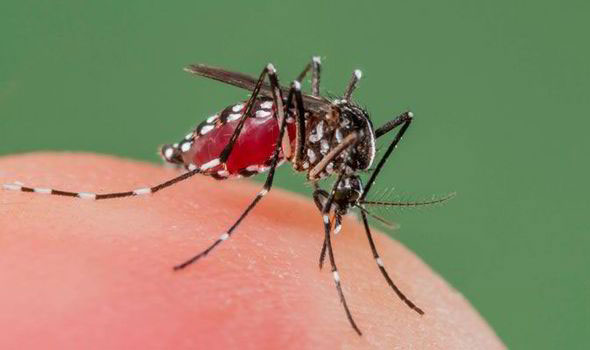Warning about the emergence of drug-resistant malaria parasites
According to research published in the New England Journal of Medicine (NEJM) on July 30, the global fight against malaria is seriously threatened by the emergence of resistant strains of malaria parasites in the Southeast Asia border area.
>>>Important findings pave the way for antimalarial drugs
A group of scientists from Oxford University (UK) led by Professor of Tropical Medicine Nicholas White analyzed the blood samples of 1,241 patients, adults and children, infected with malaria in 10 countries. throughout Asia and Africa between May 2011 and April 2013. Patients received anti-malaria treatment for 6 days, including 3 days of artemisinin therapy and 3 days of artemisinin therapy in combination with other drugs (ACT). The rate of killing parasites in the blood will be determined later.
The results show that the most effective anti-malaria drug resistance in artemisinin in Plasmodium falciparum - the most dangerous form of parasitic malaria, has occurred in the North and West of Cambodia, Thailand, Vietnam and Eastern Myanmar. In addition, there are signs of drug-resistant parasites in Central Myanmar, Southern Laos and Northeast Cambodia.

Photo: express.co.uk
According to Jeremy Farrar, director of the Wellcome Trust Global Charity, if mosquitoes are resistant to spread outside Asia and into Africa, the major progress achieved in reducing malaria deaths will be reversed. completely. Mr. Farrar stressed that this is not a threat to the future but the threat of today. For his part, Professor Nicholas White warns that the current methods of controlling malaria are not enough, need to act more aggressively and put this risk as a priority of global public health.
Last year, the World Health Organization (WHO) announced the emergence of artemisinin-resistant parasites in four Southeast Asian countries, and 64 countries found evidence of insect-resistant parasites. More than half of the world's population is at risk of malaria, a mosquito-borne disease that kills 600,000 people each year. Most of the victims of malaria are children under 5 who live in the poorest areas in southern Sahara Africa.
From the late 1950s and 1970s, malaria parasites resistant to chloroquine were spread throughout Asia and Africa, leading to the re-emergence of malaria and millions of deaths. Chloroquine was soon replaced by sulphadoxine-pyrimethamine (SP) , however, the SP-resistant parasite appeared in West Cambodia and once again spread to Africa. Most recently, the most effective antimalarial drugs - artemisinin and artemisinin therapy combined with other drugs to prevent the risk of drug resistance (ACT) were born. However, many experts are concerned that with the current situation, it is likely that ACT-resistant parasitic strains will appear and threaten international efforts against this deadly malaria.
- 'Aggressive' drug-resistant malaria parasites spread throughout Southeast Asia
- Vietnam has appeared chemical resistant mosquitoes, which are at risk of spreading
- New way to kill malaria parasites
- Solving the phenomenon of drug resistance by giving bacteria 'fighting' together
- New discovery about malaria
- KP-15: New synthetic substance to kill malaria parasites
- Southeast Asia is afraid of drug-resistant malaria
- Warning of the existence of blood-borne malaria parasites in African countries
- How to diagnose, treat and prevent malaria
- The United States develops 100% immunization against malaria
- Discover how to kill malaria-causing parasites
- Decoding DNA of malaria parasite
 Why do potatoes have eyes?
Why do potatoes have eyes? 'Tragedy' the world's largest carnivorous life: Death becomes ... public toilet
'Tragedy' the world's largest carnivorous life: Death becomes ... public toilet Tomatoes were once considered 'poisonous' for 200 years
Tomatoes were once considered 'poisonous' for 200 years Detecting microscopic parasites on human face
Detecting microscopic parasites on human face